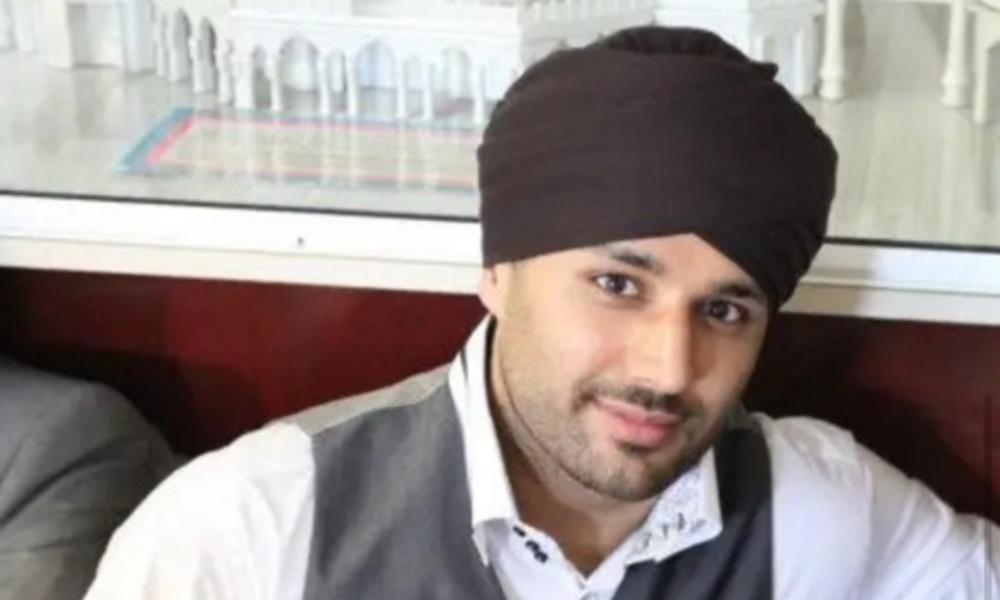It's time to know your own value too…

Jag Singh is not ashamed to admit one of the big things that attracts him to mortgages – making money. “First things first,” Singh told Mortgage Introducer, “everyone needs money.”
It was one of the driving forces behind him leaving his job as a customer adviser at one of the main high street banks, retraining as a mortgage broker and going to work for an estate agent.
The bank he left had been prepared to train him as a broker, explained Singh (pictured), but without the financial reward.
“They were telling me they could make me a mortgage adviser and put me on the same salary, they were doing me a favour,” he recalled. “I was obviously talking with brokers, going on LinkedIn, seeing people were making way more than that. I said, ‘no’. Within one year I doubled my salary. It just shows – same hours, same job. It gave me a passion to do well.”
For Singh, it was an early lesson in knowing your value.
“Brokers are valuable, we are very valuable,” he said. “A solicitor charges his fee, no-one bats an eyelid. The surveyor charges a fee, no-one bats an eyelid, but as soon as there's a broker fee, people suddenly get the hump. People need to understand.”
Speed is of the essence in mortgages
Singh was also persuaded to jump ship from the banking giant which employed him after learning another valuable lesson – the importance of responding fast in today’s speed economy.
“We had a customer who needed to do a mortgage,” he recalled. “In the bank it took three-and-a-half weeks to get an appointment. In the time it took for the bank to actually see them, the estate agent’s broker already had a mortgage offered.
“Things need to be done fast and what I have found is people like doing them as fast as possible. It made me realise that the bank was very cumbersome and too slow at making decisions.”
Singh joined Connells just before Brexit and a few years before COVID hit, so one might imagine that his early career was a baptism of fire. But not so.
“Pre-Brexit, there was a lot of media BS,” he said. “You just could not believe anything you'd been told. They were saying the economy is going to crash - that's not happened.
“Immigration hasn't slowed down. If anything, you can see immigration's up. There's about 400 people a week coming into the country. For your average person, houses are going to be their best investment. Everybody has to live somewhere. Everybody has to stay somewhere, so the market is always there.”
When is the best time to become a mortgage broker?
There is, Singh believes, no perfect time to join the industry.
“You enter the market whenever you enter it,” he reasoned. “You can't say, ‘I want to join when the market's good’, because during that first bit of COVID, once it was over, obviously houses were selling like hotcakes, way over asking prices. It made it really easy to sell a life insurance because everyone was like, ‘yeah, yeah, I'm taking it. I'm taking it.’ COVID spurred that on. People also learnt to save money.”
Today, Singh is a mortgage adviser at independent firm Morgan Financial Solutions, and – now in his late 30s – owns two properties of his own. He believes that better financial education needs to be provided to pupils – there was none when he was at school.
“Everything I learned about houses I learned from being a translator for my dad when he was buying a house,” Singh explained. “I’ve found that first-time buyers will use the wisdom of somebody else who bought property long ago - what they've been taught is out of date.
“Somebody says, ‘My bank will do me a good deal - they won't. Sometimes you have to break it down to people and say you're not going to get a good deal - you’re going to get the same deal as everyone else. People need to understand that - brand loyalty is almost harming you at some point.”
Over the past decade Singh has written over £2m in business. Clearly a success story, he is clear about what it takes to be a good broker.
“As a broker, you have to focus on acquiring new clients, managing expectations, then working from there,” he said. “One of the best things I've learned is now telling people if we're not the right fit. Just telling them, ‘no’.
“I don’t care how big the mortgage is or what they're prepared to pay, if the client doesn't fit you, or if they're ringing you excessively, treating you badly, you need to stop it.”
And now, as he focuses on specialist finance, Singh considers that mortgage advisers shouldn’t spread themselves too thinly. “It’s tempting to do everything,” he said. “You can’t.”



